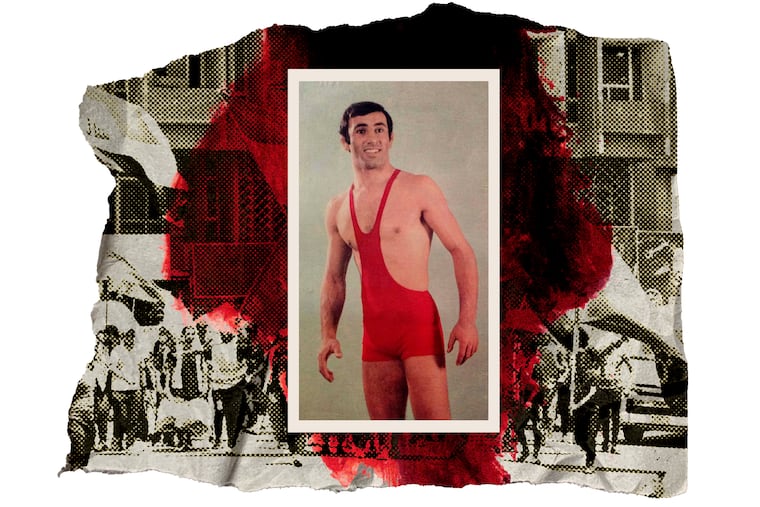Exiled Iranian wrestler: International community must hold Iran accountable for human rights abuses
In order to understand the regime’s actions, we must look closely at its words.

On Saturday, two men were executed in my home country of Iran. One, Mohammad Mehdi Karami, was a 22-year-old national karate champion. The other, Seyed Mohammad Hosseini, was a 39-year-old factory worker. Both were hanged in connection with nationwide protests following the death of 22-year-old Mahsa Amini. Both appealed against their sentences, saying they had been tortured into making false confessions.
For many Iranians, the consequence of dissenting against the Islamic Republic is death, and athletes have been disproportionately targeted. In the months since Amini’s death at the hands of the morality police in mid-September, an estimated 750 Iranians have died in street clashes and torturous interrogations in connection with protests that extended to all 31 provinces. In December, authorities began carrying out death sentences for arrested protesters. Besides the two athletes, Iran has executed two other protesters so far.
Anyone who defies the mullahs has no future.
As a former Olympian and a national wrestling champion from Iran, I feel the pain of these athletes and dissidents acutely. I lived in Mashhad, a city in northeast Iran, for 26 years, and I was persecuted for my political dissent against Shah Mohammad Reza Pahlavi. Even though I was a popular athlete who had won Iran’s national wrestling championship in 1973, the regime banned me from national and international competitions after I expressed opposition to the shah’s repressive rule.
The regime lifted the ban in the face of public outcry, and after two years away from the sport, I competed for the national team at an international competition in Tbilisi, Georgia, where I won a gold medal. Soon after, a former coach tipped off my mother that the government was coming for me. I was forced to flee, and I have been living in political exile for 40 years. I came to Philadelphia, where I opened a carpet store. If I return to Iran, I will be executed.
The Iranian regime is targeting prominent public figures in order to intimidate Iranians into silence. Human rights groups, including Amnesty International, and even Iranian state media outlets have identified more than two dozen individuals who either have been handed death sentences or indicted on the capital charges of “enmity against God” or “spreading corruption on Earth” for their participation in protests. Among them are well-known athletes including the volleyball coach Fahimeh Karimi and Amir Nasr Azadani, a soccer player.
The clerical regime has a long history of punishing athletes most severely for their expressions of dissent. In fact, it seems likely that the execution of Majidreza Rahnavard on Dec. 12 may have been motivated in part by his accomplishments as a wrestler. After finding the place where authorities secretly buried him, his family identified him in chants as “Beloved of the homeland, martyr of the nation.” His story reminds me of Navid Afkari, the champion wrestler who was executed in 2020 after he participated in a protest calling for economic justice.
In order to understand the regime’s actions, we must look closely at its words.
It has called the protesters egteshashgar (rioters). Senior officials, including President Ebrahim Raisi, justify the death penalty by relying on the notion that Ayatollah Ali Khamenei, the supreme leader of the Islamic Republic of Iran, is God’s representative on Earth. This theocratic mentality permits the regime to commit any crime or any abuse of human rights in the interest of safeguarding the Islamic revolution. The hardline paramilitary will always prioritize the interests of the clerical establishment ahead of the interests of the nation and its people.
» READ MORE: In Iran, I narrowly avoided the morality police
The fact that executions have been happening for decades is not to say that speaking out against the regime is useless. It is just to say that pressure must be more extensive and consistent to be effective. It must also have an international element. Although Western powers have condemned the executions, more concrete actions are needed to save those on death row in Iran.
I can’t help but remember that, in 1988, Ayatollah Ruhollah Khomeini issued a fatwa declaring all the People’s Mojahedin Organization of Iran (MEK) supporters guilty of “enmity against God,” thereby setting the stage for the systematic execution of 30,000 political prisoners.
Fear of another massacre is understandably growing, and the risk will increase as long as the regime continues to enjoy impunity in matters of domestic human rights. To challenge that, the international community must make it clear that the regime will be held accountable for crackdowns against dissent. Iranians must have the right to resist and defend themselves.
Kazem Gholami, a former Olympian and national wrestling champion of Iran, is the president of the Iranian American Community of Pennsylvania. He is a civil engineer and resides in Philadelphia. gholamikazem@yahoo.com